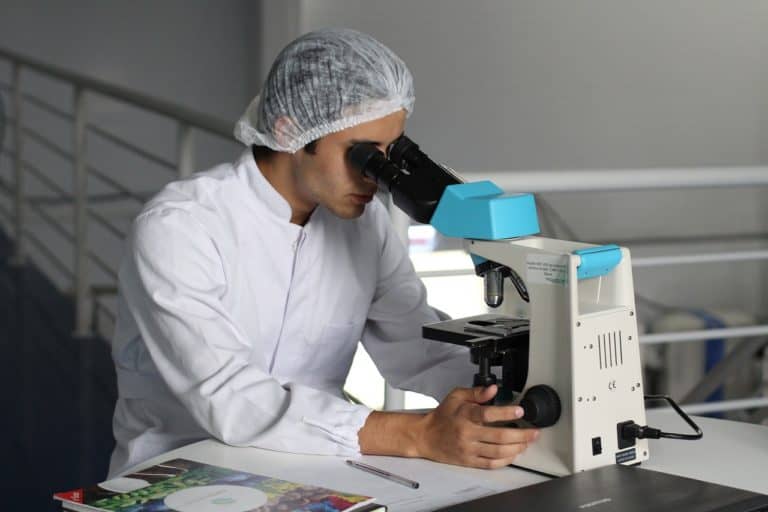It appears that men with prostatitis get prostate cancer more often than men without the inflammatory condition. For now, however, there is no direct evidence that having prostatitis increases a man’s risk of developing or eventually dying from prostate cancer. Before we look at the relationship between prostatitis and prostate cancer, an understanding of prostatitis is helpful.
What you should know about prostatitis
Prostatitis is a condition in which the prostate is inflamed, causing it to press against or constrict the urethra, which in turn results in problems with urination. Although getting a diagnosis of prostatitis is not life-threatening, the symptoms can be significantly life-altering for some men and uncomfortable and annoying for others.
Prostatitis can appear as one of four types:
- Acute bacterial, which is relatively rare, typically severe, yet also relatively easy to cure with antibiotics
- Chronic bacterial, which can be somewhat challenging to diagnose but the presence of recurring urinary tract infections is a good clue. Antibiotic treatment is the best course of action
- Asymptomatic prostatitis, which is usually discovered accidentally when physicians are conducting an examination for prostate cancer or infertility. Treatment is not always necessary
- Chronic prostatitis/chronic pelvic pain syndrome, or CP/CPPS, which comprises more than 90 percent of prostatitis cases. Diagnosis is challenging because doctors need to rule out bacterial infections as well as any other urological condition that could be causing the symptoms, which typically include chronic pelvic pain that may also radiate to the back, testicles, and bladder area. Fatigue, muscle aches and pains, abdominal pain, urinary frequency, and burning pain in the penis also may occur. Current treatments are not very effective and usually requires multiple approaches.
Prostatitis and prostate cancer
Various reasons may explain why men with prostatitis seem to be diagnosed with prostate cancer more than men without prostatitis. Men with prostatitis may seek urological care more often, which means they are more likely to be examined and questioned regarding issues with their prostate. Basically, a greater awareness of one’s prostate and its functioning also raises one’s radar about possible problems.
Another reason is that men with prostatitis may be tested more often, including prostate-specific antigen (PSA) screenings and a greater possibility of having a prostate biopsy. If a man has symptoms of prostatitis, he may ultimately be told he has prostate cancer as a result of examination and testing.
Among men who have been diagnosed with both prostate cancer and prostatitis, choosing the best treatment plan can be problematic. Some men may think about hormone therapy, for example, which can have no effect on the cancer but may help prostatitis symptoms improve. Others might consider radiation, but this treatment may aggravate prostatitis symptoms.
Another scenario to consider is that for some men without a history of prostatitis and who are treated with radiation (external beam or brachytherapy) for prostate cancer, a consequence can be the development of radiation prostatitis. Symptoms of radiation prostatitis are virtually identical to those of CP/CPPS.
Prostatitis, prostate cancer, and prostatectomy
Men who have severe prostatitis symptoms sometimes choose to undergo a prostatectomy, even if they don’t have prostate cancer, in hopes their symptoms will be relieved or eliminated. Often, however, the symptoms continue or dissipate for a short time, only to return. On average, about one third of men with prostatitis symptoms who have a radical prostatectomy will experience some relief.
One challenging condition is seen among men who have never had prostatitis, who have a prostatectomy for prostate cancer, and who then develop severe symptoms of prostatitis. Because these men don’t have a prostate, one explanation for their pain is some type of pelvic nerve damage that occurred during surgery. This type of pain issue often responds well to physiotherapy, heat treatment, muscle relaxants, and targeted stimulus gradually over time.
Overall, prostate cancer and prostatitis can occur simultaneously, and the presence of prostatitis when men are trying to manage and treat prostate cancer can be problematic. It’s important to remember that treatment of prostatitis in these cases is usually supportive rather than curative. It’s also essential to work with a healthcare provider who has worked with men who have presented with both conditions.
Read more in our Prostate Cancer Health Center.
Read more in our Prostatitis Health Center.
Reference
Perletti G et al. The association between prostatitis and prostate cancer. Systematic review and meta-analysis. Arch Ital Urol Androl 2017 Dec 31; 89(4): 259-65







